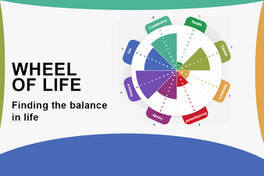
Approximate reading time: 5m 59s
Which psychological games can hurt the team? Are these games fun or can they be detrimental to the atmosphere at work. Who wins and who loses from them?
How to recognize people who have a destructive effect on the psychological atmosphere at work, and what to do about them?
In my career I have repeatedly observed how companies spend a lot of money and effort on staff training, introducing technical innovations, automating processes, but at the same time do not pay enough attention to the psychological climate in the team. After all, fault-finding, conflicts, accusations, shifting of responsibility are so common shortcomings during team communication that one does not really think about their nature and the deep processes of which they are symptoms. And given the constant rush, the fight for market share, the failure to execute plans, the multiple meetings, everything related to team communications fades into the background.
I suggest we take a look at the "fun psychological games" that are played in the team, what employees talk about, how they behave, what words they use in their speech. Let's dive into the invisible world of psychological games played by our colleagues at work, managers and subordinates.
As an example, we will look at two psychological games. Let's see how they manifest themselves, why they are played, what consequences it leads to and how to minimize their negative impact.
What is a psychological game?
Before I move forward, I propose to define what psychological play is. According to psychologist Erik Burn / Erik Burn psychiatrist /: psychological games are a process of communication between people, when a person unconsciously pretends to want to achieve one thing, but actually needs to achieve something completely different. They are always unconscious and give the person different advantages: "gains". (more in the examples below).
The reasons for the games lie deep within us, and not in the bright and noble part that we want to show to the world and ourselves, but in the dark and ugly part where we don't want to look. That's why it's so hard for us to define them, and it feels like for reasons we don't understand, we go in circles, only the geolocation and names change, but the essence remains the same. In Eric Byrne's book Games People Play, the author looks at the different psychological games people play in their lives at work and at home. Here we will look at just two examples :
The Psychological Game of "Defects". How is it played?
Many people have come across acquaintances, managers or colleagues who constantly point out flaws in other people, put labels: someone is stupid, often wrong, doesn't have enough brains to do the job, dresses tastelessly, etc. The goal is to diminish the importance and value of the person.
For example :
- "But how can he possibly give us savvy advice when he hasn't worked a day in our place"
- "He can't even tie his tie properly when we go to client meetings"
- "The report is OK, but since I'm going to show it to management, the text is not aligned in width"
Do you know such people?
It's important not to confuse this game with reacting to real facts or not following established norms and corporate rules. People who play this psychological game, always, find fault, often contrived, exaggerated or out of place. They present it emotionally rather than constructively.
Why is this game played?
Such people often behave this way, not because they have done a thorough analysis or have extensive experience. They look for flaws to boost their low self-esteem, to "give" themselves confidence. This often manifests itself in the fact that one feels insecure with other people (especially new ones) until one finds a flaw in them and only then is one comfortable interacting with them. He somehow brings another (more self-confident, bright or successful) down to his level so that he is comfortable communicating with them or avoids communication altogether.
Another case is when a person seeks a flaw in order to then offer help in removing it and thus prove his necessity, importance . Why in this way? Obviously one is not fully convinced that one is necessary and significant.
I don't think it's worth talking about the fact that if one of the leaders of your company is playing this game, then it can't be about developing the people in the team. Valuable and successful employees will be fired and the proportion of victims, "victims" and losers will only grow.
What to do?
- Since this often happens unconsciously, then if it is your subordinate or close colleague, you need to point him to specific examples of behavior, explain to him how it looks from the side. If he's willing to change, then help him address the reasons for his insecurities.
- If this is your leader, then you are unlikely to decide to have this conversation and it will be very difficult to change this person without their willingness and agreement. There are two ways out: endure by ignoring or move to another position/company.
- Do you monitor yourself? Every time answer the question, "What don't I like about me, why do I resort to looking for flaws in others?", "What causes insecurity in me?" Finding answers to these questions will begin the process of getting to know your true self.
- Lastly, the reward of raising low self-esteem, and affirming one's worth. Therefore, one tactic may be to deprive the other party of this gain. How? For example, calmly and constructively (without destructive emotions) explain that the "flaws" discovered do not affect the outcome or are not as significant as they are trying to be presented... As a result, over time the person will not "play" with you (after all, "no win - no point in playing"), but will move on to more constructive communication.
Psychological game "Yes, but ..." How does it manifest itself?
Let's consider a conversation familiar to many. A dialogue between the subordinate P. and the leader S.:
P: Pachikov, my client doesn't want to sign a contract but wants to go to the competitors. What should we do?
S: Too bad ... Did you tell him about the new terms of the guarantee?
P: Yes, but it didn't work out ...
S: Did you offer a deferred payment?
P: Yes, but he no longer has financial problems ...
S: Did you talk about a discount?
P: Yes, but initially I gave him a reduced price, but competitors have a lower price anyway.
In the end, the manager took on the customer himself
Why is the game being played?
There could be several reasons (benefits). In one case, it could be gaining confidence: 'I'm a good person, I've taken all the opportunities'. Another is the attempt to avoid responsibility. In a third, it is to justify failure: 'Even you, the leader, couldn't offer anything effective, so you shouldn't ask me at all'.
Leaders are not infallible either, and can use the game to assert themselves in meetings or in conversations with employees to make others look bad - unable to offer a solution.
What to do?
- Make a note of the magic phrase "Yes, but" or other such phrases in the dialogue. From the outside it may appear that a business conversation is being conducted with the aim of finding a solution, but on a psychological level a completely different action is taking place, therefore look for indicators of the game.
- As mentioned above, the most effective way is to deprive the person of the "prize" or "win" in the case (shifting responsibility, justifying failure). To do this, you must ask, "What action did you take yourself to resolve this problem?" And after the answer, return to the interlocutor those actions that he did not indicate. Naturally, this may cause the person's resentment, since he has come with a problem and instead of helping him you are subjecting him to doubt and questioning, but there is no other way if the person is suspected of abusing the game.
- If you notice insecurity in an employee, then item 2 will be ineffective, so tell him that you believe in professionalism and perseverance and that he will still find a way out. Give good advice, but don't perform his task. If you give in once, they will start playing the "Yes, but ..." game with you all the time!
- In a pinch, say that you are annoyed that due to the loss of a customer he will not get a bonus.
- If you yourself are the initiator of this game, then admit it. Then consider whether you have really done all you can to resolve the problem.
Result
The two psychological games described above revolve around confidence, responsibility, self-esteem, or rather the lack thereof. For these qualities to become dominant in an individual, managers need to be trained to observe employees and recognize the signs and attempts to engage in the games. After all, game recognition is, on the one hand, a screen that shows real problems but distances us from their solution. On the other hand, the game is the key to understanding what is really going on with the employee. Use this knowledge to your advantage.
It is good to pay attention and train the teams themselves to recognize this type of behavior and successfully overcome it.
Confidence and self-esteem are compromised in many people. Respect, systematic mentoring, training, and support from management and colleagues can "ignite" the individual for a more fulfilling life and experiences. A person who is confident in his or her strengths and abilities can carry the heavy load called responsibility.
We can offer such training and more for your teams. Call or email us. Take a look at our Team Management, Leadership Essentials, Leadership Skills trainings. In them we will reveal the secrets of successful leadership. Sign up!





